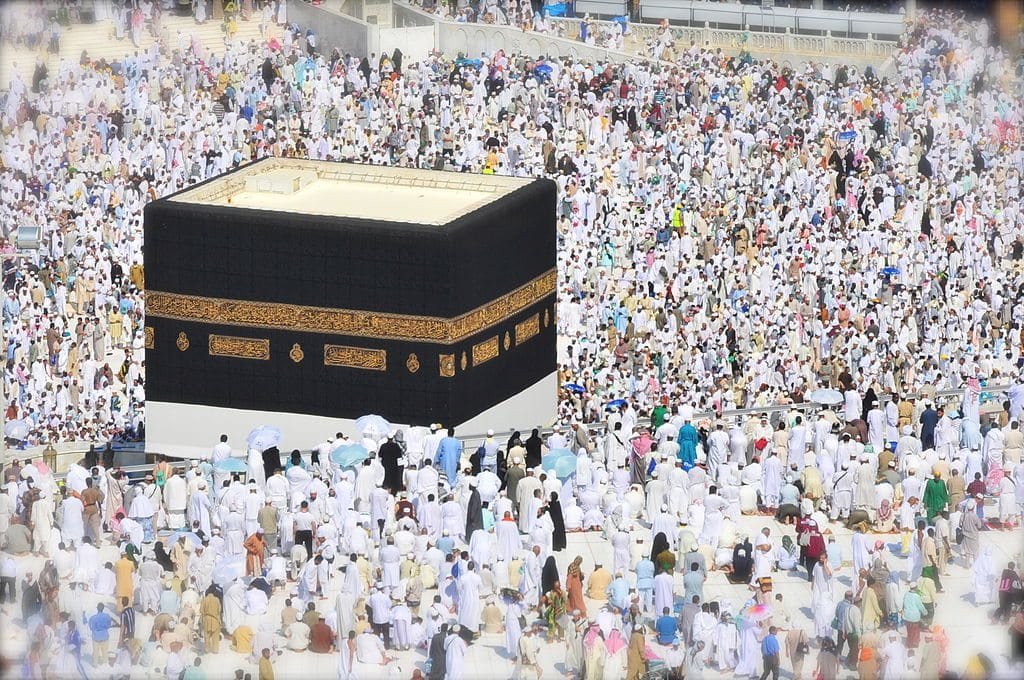Is My Umra Valid If I Didn’t Correctly Make Intention and Recite Talbiya?
Hanafi Fiqh
Answered by Shaykh Yusuf Weltch
Question
Must I pay the expiatory charity (fidya) for not properly making the intention for Umra and not properly pronouncing the Talibiya supplication?
Answer
In the Name of Allah, the Most Merciful and Compassionate.
It is a prerequisite for a valid Umra to enter into the state of Ihram. This requires the following actions:
- Intention;
- Talbiya. [Maydani, al-Lubab fi Sharh al-Kitab]
Intention
It is sufficient as an intention that one knows what they are performing. To articulate the intention is an emphasized sunna and done with the following formula:
“.اللهم إني أريد العمرة فيسرها لي وتقبلها مني”
“O Allah, I intend Umra, so make it easy for me and accept it from me.” [Ibid.]
Talbiya
Once the intention is made, one then recites the Talbiya:
“.لبيك، اللهم لبيك، لبيك لا شريك لك، لبيك إن الحمد والنعمة لك والملك، لا شريك لك”
“At Your service, O Allah, at Your service; at Your service, You have no partner. All praise, blessings, and dominion are Your’s, You have no partner.”
Note: to recite less than this is prohibitively disliked if one knows and is able to recite the full formula. If one is unable to recite the above well, or at all, it is sufficient for them to recite any glorification of Allah Most High. [Sighnaqi, al-Nihaya Sharh al-Hidaya]
Hope this helps
Allah knows best
[Shaykh] Yusuf Weltch
Checked and Approved by Shaykh Faraz Rabbani
Shaykh Yusuf Weltch teaches Arabic, Islamic law, and spirituality. After accepting Islam in 2008, he completed four years at the Darul Uloom Seminary in New York, where he studied Arabic and the traditional sciences.
He then traveled to Tarim, Yemen, where he studied for three years in Dar al-Mustafa under some of the most outstanding scholars of our time, including Habib Umar Bin Hafiz, Habib Kadhim al-Saqqaf, and Shaykh Umar al-Khatib.
In Tarim, Shaykh Yusuf completed the memorization of the Quran and studied beliefs, legal methodology, hadith methodology, Quranic exegesis, Islamic history, and several texts on spirituality. He joined the SeekersGuidance faculty in the summer of 2019.
